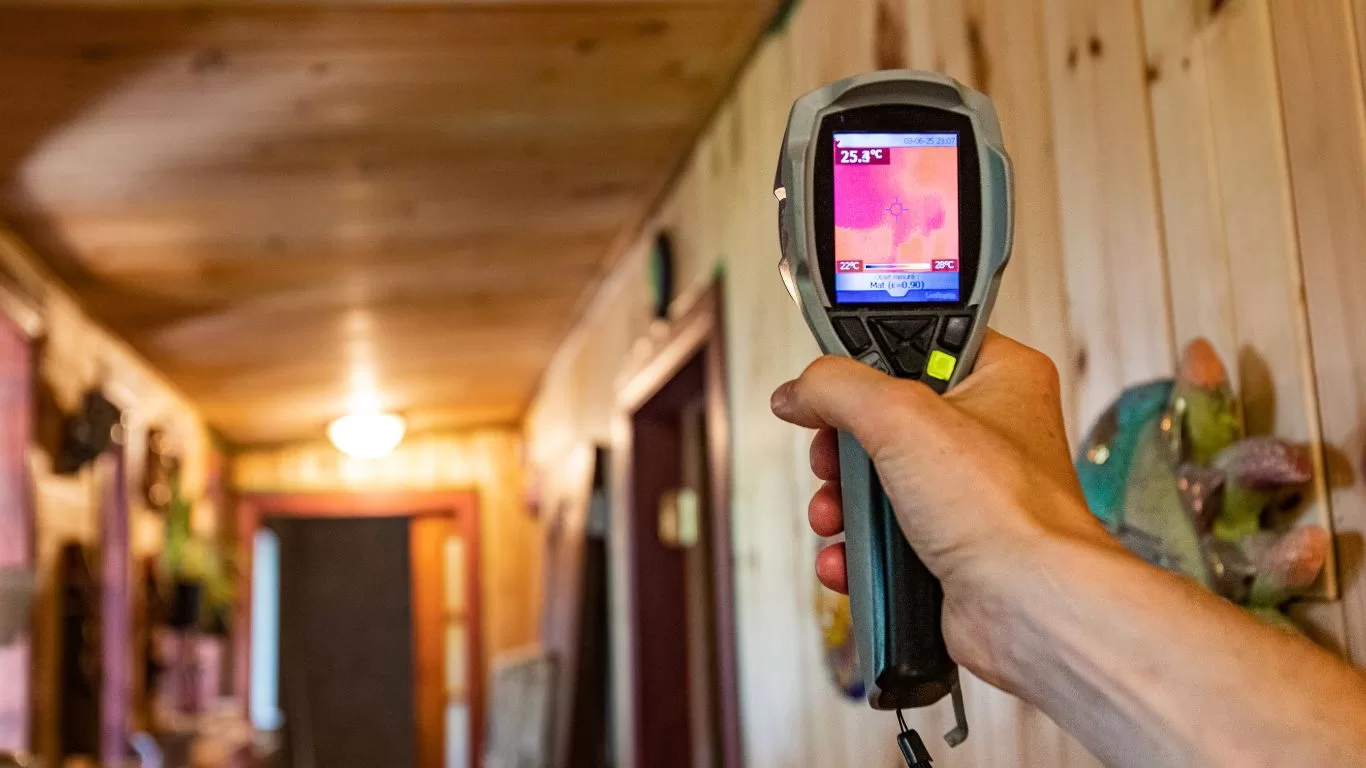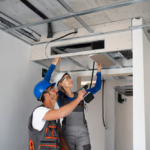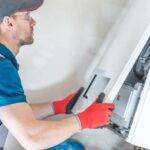Importance of Indoor Air Quality
- Did you know that poor indoor air quality can affect the performance and lifespan of your HVAC system?
- Dust, dirt, and other contaminants can accumulate in the system, causing it to work harder and less efficiently.
- This can lead to higher energy bills and more frequent breakdowns, impacting the overall comfort and air quality in your home.
- By ensuring good indoor air quality, you can help extend the life of your HVAC system and reduce maintenance costs.

Factors affecting indoor air quality
Indoor air quality can be influenced by several factors, which, in turn, can impact the performance of your HVAC system. Some key factors include:
- Ventilation: Proper ventilation is essential to ensure that indoor air is circulating effectively and not becoming stagnant.
- Humidity Levels: High humidity can lead to mold growth, while low humidity can cause discomfort and respiratory issues.
- Airborne Particles: Dust, pollen, and other airborne particles can affect the cleanliness of your indoor air.
- Chemical Pollutants: Harmful chemicals from cleaning products, furniture, and building materials can degrade indoor air quality.
- Biological Contaminants: Mold, bacteria, and viruses can thrive in indoor environments and impact air quality.
Understanding these factors and taking actions to address them can lead to improved indoor air quality and a more efficient HVAC system.
Effects of poor indoor air quality on HVAC systems
Poor indoor air quality can severely impact the performance and longevity of your HVAC system. When the air quality is compromised, the system has to work harder to circulate and clean the air, leading to increased wear and tear on the components. This can result in more frequent breakdowns and the need for costly repairs. Additionally, dirty air filters caused by poor indoor air quality can lead to reduced airflow and decreased efficiency of the HVAC system. It is crucial to maintain good indoor air quality to ensure the optimal functioning of your HVAC system.
Tips for improving indoor air quality
To improve indoor air quality, regularly clean and replace your HVAC filters. Consider using air purifiers to help remove pollutants and allergens from the air. Increase ventilation by opening windows and using exhaust fans in kitchens and bathrooms. Keep indoor humidity levels between 30-50% to prevent mold and mildew growth. Regularly dust and vacuum to reduce dust mites, pet dander, and other particles in your home. Finally, consider installing UV lights in your HVAC system to help kill bacteria and mold.
HVAC system maintenance for better air quality
To maintain good air quality in your home, regular maintenance of your HVAC system is crucial. By keeping your system clean and properly functioning, you can improve the indoor air quality and extend the lifespan of your HVAC system. Here are a few key maintenance tasks that can help you achieve better air quality:
- Change your air filters every 1-3 months to prevent dust and debris buildup
- Clean the evaporator and condenser coils to ensure efficient heat exchange
- Keep the air ducts clean to prevent the buildup of dust, mold, and other contaminants
- Schedule annual professional maintenance to detect and address any potential issues with your HVAC system
By staying on top of these maintenance tasks, you can ensure that your HVAC system is running efficiently and providing you with clean, healthy air.
Air filters and their role in indoor air quality
When it comes to indoor air quality, air filters play a crucial role in your HVAC system. They are responsible for trapping dust, pollen, and other airborne particles to keep your indoor air clean. Using high-quality air filters can help improve the air you breathe inside your home. Regularly changing your air filters is essential to maintain good indoor air quality and ensure your HVAC system functions efficiently. Neglecting to change the filters can lead to decreased air quality and strain on your HVAC system, potentially leading to costly repairs.
Ventilation and its impact on indoor air quality
Good ventilation is crucial for maintaining good indoor air quality, as it helps to remove pollutants and bring in fresh air. Proper ventilation can reduce the concentration of indoor air pollutants, preventing health issues and discomfort. Additionally, it plays a vital role in maintaining the efficiency and longevity of your HVAC system. Proper ventilation can also prevent the build-up of moisture, which can lead to mold and mildew growth, impacting both air quality and the HVAC system. Inadequate ventilation can cause your HVAC system to work harder, leading to increased energy consumption and potential system malfunctions.
Humidity control and its effect on indoor air quality
Humidity greatly affects indoor air quality. High humidity can lead to mold growth and increased allergens, while low humidity can cause dry and uncomfortable air. This can put stress on your HVAC system. High humidity forces the system to work harder to remove excess moisture, while low humidity can lead to increased wear and tear on the system. Proper humidity control is essential for maintaining a healthy and efficient HVAC system.
Signs of poor indoor air quality
Do you often experience frequent headaches, nasal congestion, or eye irritation at home? These could be signs of poor indoor air quality. If you notice mold growth, excessive dust, or lingering bad odors, these can also indicate a problem with the air you are breathing indoors. Keep a lookout for these signs, as they can have a crucial impact on your HVAC system.
Conclusion: the importance of maintaining good indoor air quality for HVAC systems
It’s crucial to prioritize good indoor air quality to keep your HVAC system running smoothly. Poor air quality can lead to clogged filters and reduced efficiency of your HVAC system. Regular maintenance of air quality can prevent costly repairs and ensure the longevity of your HVAC system. Additionally, clean air helps maintain a healthy living environment for you and your family. Implementing proper air quality measures can save you money in the long run and contribute to a comfortable and healthy home atmosphere.




